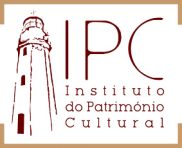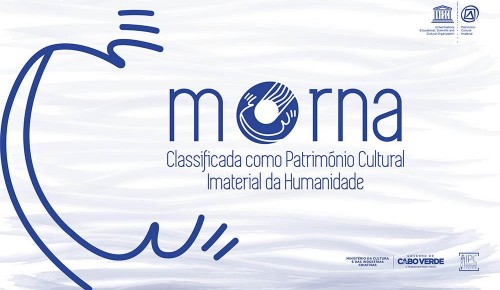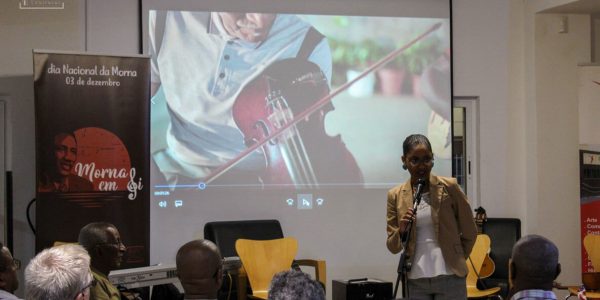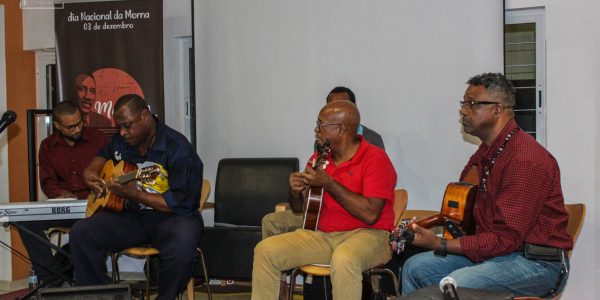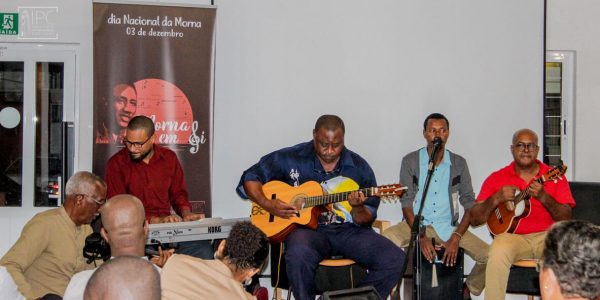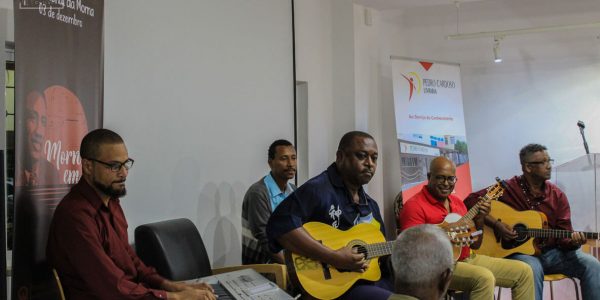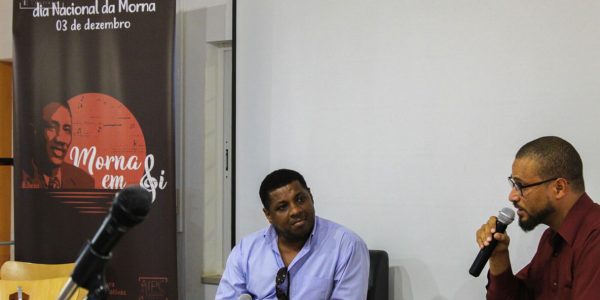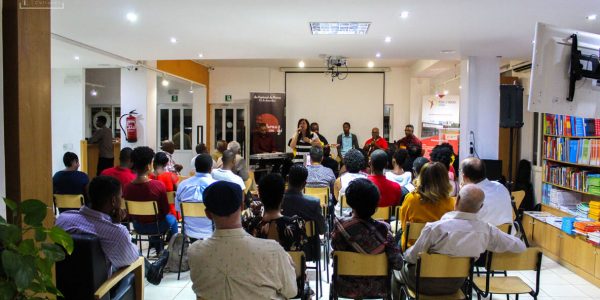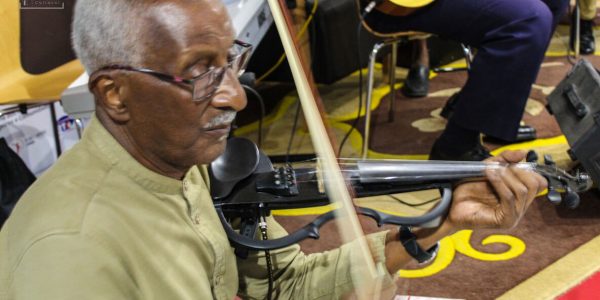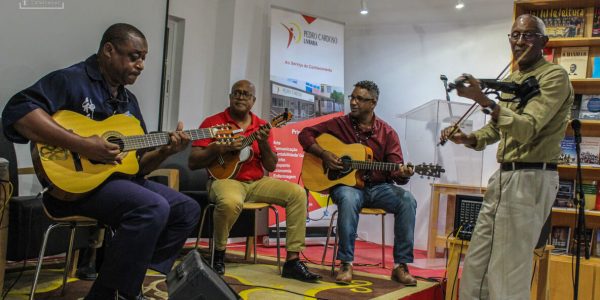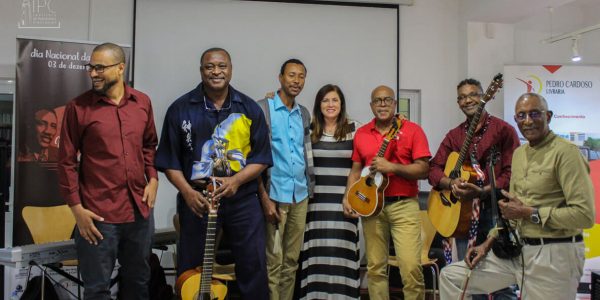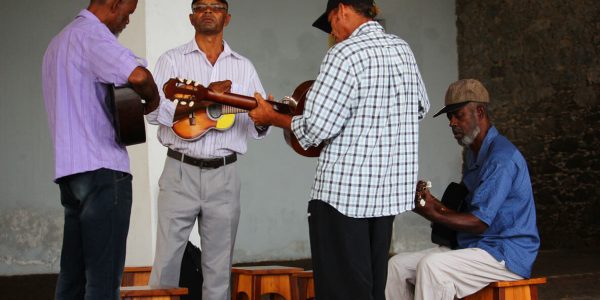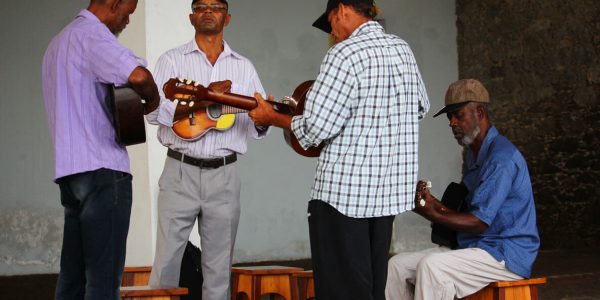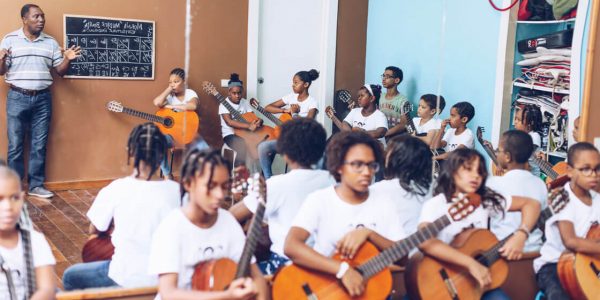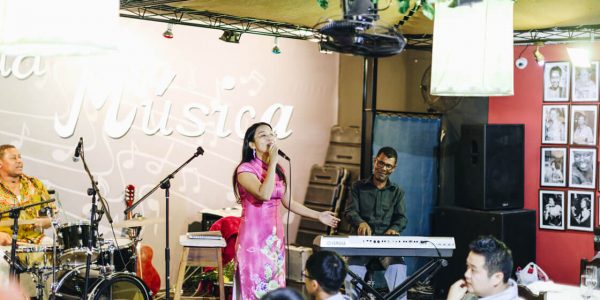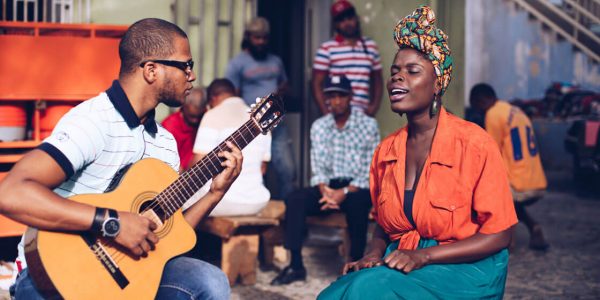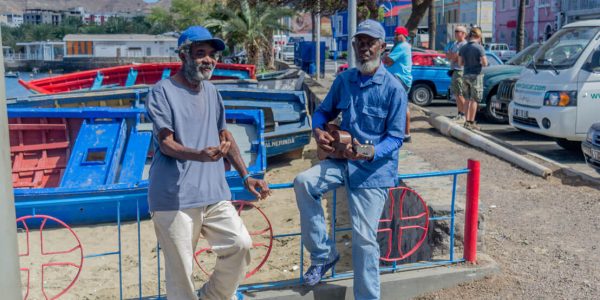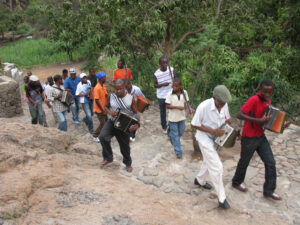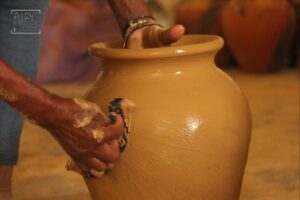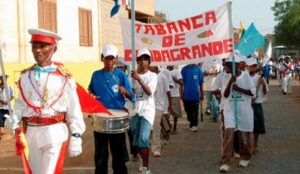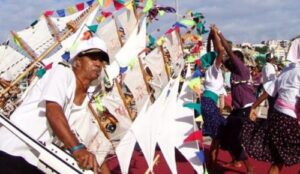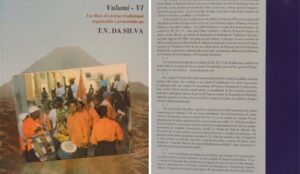Geralmente acompanhada por instrumentos acústicos como a viola, o cavaquinho, o violino, o piano e, mais recentemente, a percussão e o baixo, é, contudo, o violão, o instrumento de excelência da morna, permitindo os baixos corridos (designados bordões), a ampla utilização de acordes de transição (meio-tom ) e o favorecimento das condoídas Txoradinhas (sons agudos e arpejados).
Este género musical pode ser apreciado em variadas situações e ambientes tendo lugar tanto em recintos fechados (bares, restaurantes etc.), onde decorrem as famosas “noites cabo-verdianas”, como em outros meios descontraídos, sob a luz do luar ou cheirando a maresia. Sem esquecer da forte presença da morna em certos ritos de passagem (Sete e Exéquias), é de se registar, ainda, em certas ilhas, a prática da serenata ao relento, por baixo de uma janela de uma amada, amigo ou ente querido.
ler maisReconhecendo a importância do género para o cabo-verdiano, a 27 de fevereiro de 2018, a casa magna nacional, instituiu o dia 3 de dezembro como o Dia Nacional da Morna. A data escolhida é uma homenagem a um dos mais ilustres compositores de Cabo Verde, Francisco Xavier da Cruz – B.Leza. Um ilustre compositor que deixou marcas históricas na geração dos músicos cabo-verdianos, desde a sua época até atualidade.
O Estado de Cabo Verde, através do Ministério da Cultura e das Industrias Criativas, submeteu à Unesco, em Março de 2018, o processo de candidatura da morna a Património Cultural Imaterial da Humanidade.
11 de dezembro de 2019, fica marcado na história da nação cabo-verdiana como o dia da consagração da Morna como Património do Mundo. Na 14ª sessão do Comité Intergovernamental para a Salvaguarda do Património Cultural Imaterial, em Bogotá, Colômbia, a Morna entrou para a Lista Representativa da UNESCO, figurando como Património Cultural Imaterial da Humanidade.
ler menus
